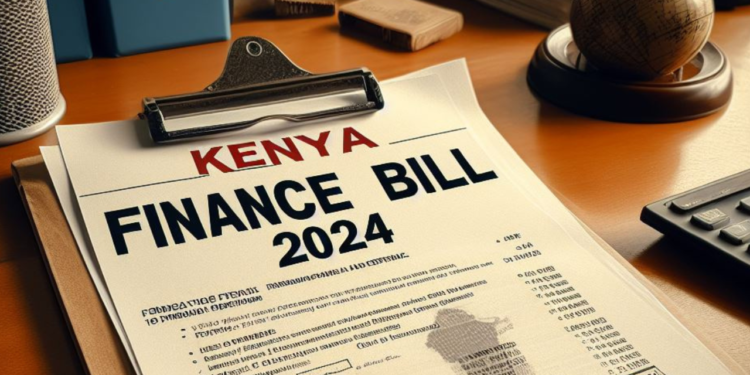The government has unveiled a comprehensive tax reform package through the Finance Bill 2024, aimed at bolstering revenue collection and revamping the nation’s taxation system. The proposed legislation introduces a range of measures that could have far-reaching implications for businesses, individuals, and the overall economic landscape.
One of the most significant changes is the removal of the Value Added Tax (VAT) exemption on banking services. Under the new provisions, services such as loan issuance, credit card processing, foreign exchange transactions, and other financial offerings will be subject to VAT. This move is expected to increase the cost of accessing credit and financial services for Kenyans.
However, the bill also seeks to provide relief for individuals by increasing the monthly allowable pension deduction from KES 20,000 to KES 30,000. This adjustment is designed to encourage retirement savings and reduce the tax burden on those planning for their future financial security.
In an effort to promote environmental sustainability, the Finance Bill 2024 introduces an “Eco Levy” on various products. The levy ranges from KES 98 per unit for items like office machines and certain diapers to KES 1,275 per unit for monitors and projectors.
Another notable provision in the bill is the proposed amendment to the Data Protection Act, granting the Kenya Revenue Authority (KRA) enhanced access to personal data for tax assessment, enforcement, and collection purposes. This move aims to improve tax compliance and collection efforts.
On the corporate front, the introduction of Advance Pricing Agreements (APAs) for transfer pricing is expected to provide multinational corporations with greater certainty in their tax affairs. However, the repeal of Section 30A of the Income Tax Act, which provides for Affordable Housing Relief, raises questions about the government’s commitment to promoting affordable housing initiatives.
The bill also proposes increasing the Import Declaration Fee from 2.5% to 3.0% of the customs value, potentially impacting import costs and consumer prices for imported goods.
The Motor Vehicle Tax, set at 2.5% of the vehicle’s value with a floor of KES 5,000 and a ceiling of KES 100,000, is another key component of the reform package. The proposed penalty for non-compliance is 50% of the uncollected tax plus the actual amount of uncollected tax.
Other notable measures include the repeal of Section 14 of the Excise Duty Act, which will impact manufacturers’ ability to offset excise duty paid on raw materials, and changes to the excise duty rates on various products and services, including cigarettes, telephone and internet data services, money transfer services, and betting.
The tax overhaul aims to address revenue collection objectives while streamlining the taxation system. However, the proposed measures have sparked discussions and debates among stakeholders across various sectors, with concerns raised about potential economic implications and the need for balanced policymaking.
















